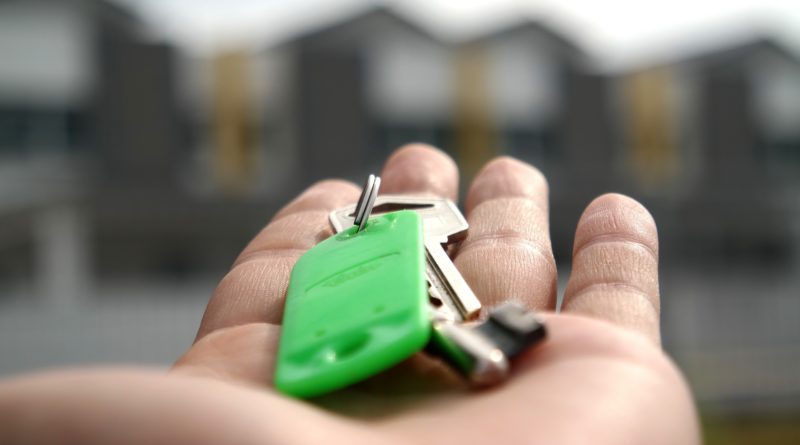Most Important Factors in Getting a Mortgage
Getting pre-approved for a home loan is a key step in the home-buying process. In this article I’ll cover the most important factors in getting a mortgage. If you’re thinking about buying a home, do your homework! You’re preparing for what is likely to be the most important investment of your life. By getting your ducks in a row before you apply for mortgage financing, you increase your chances of a smooth home-buying process.
What Are the Most Important Factors When Applying for a Mortgage?
It may surprise you to learn that applying for financing and getting pre-approved for a mortgage is not very complicated. First you will want to find a reputable mortgage broker, or work with the loan associate at your bank or credit union. In most cases, any of these people will be able to get you approved for financing through major loan programs, including FHA, HUD, etc. Some banks and credit unions offer an in-house mortgage option to people with excellent credit. Be sure to inquire about these options as well.
The most important factors in getting a mortgage include your credit score, your employment history, the size of your down payment, and the amount of debt you have. I’ll discuss each of these in a little more detail below:
Your Credit Score
Your credit score is an important factor when you apply for a mortgage. This score is used to give banks and lenders an idea of the risk associated with loaning you enough money to buy a house. Not only can your credit score determine if you can obtain a mortgage, it can also affect your interest rate.
 Some people always pay cash and suspect that since they have no debt, they will have an excellent credit score. The truth is that if you’ve never had any debt you won’t have a a high credit score. Without a history of making payments on debt, banks can’t assess where your credit score is. As a result, they don’t know if you will pay them on time.
Some people always pay cash and suspect that since they have no debt, they will have an excellent credit score. The truth is that if you’ve never had any debt you won’t have a a high credit score. Without a history of making payments on debt, banks can’t assess where your credit score is. As a result, they don’t know if you will pay them on time.
While I don’t recommend applying for 10 credit cards to improve your credit score, opening a single credit card or a small personal loan at your bank, and paying the amount due every month is a good way to build a credit score from scratch.
If you have a poor credit history and significant debt, try to work with your bank or credit card company to consolidate your debt and get on a regular payment plan which you can afford to improve your credit score.
Credit Scores range from 300 (very poor) to 850 (perfection!). Most mortgage lenders will evaluate your credit score as follows:
- 740 and above will usually qualify you for the best interest rates
- 620 is generally the lowest credit score to qualify for a conventional home loan
- Scores below 620 may still be able to qualify, but you should expect 1% or more added to your interest rate.
- 580 is the minimum score for FHA loans, but there are income restrictions on this government-backed loan program.
Remember that if you are planning to purchase a home with someone else, both credit scores will be used.
Employment History
Your credit score allows lenders to understand how you’ve handled your finances in the past. Your employment history tells lenders if you’ll be able to repay your loan. Having a track record of lengthy, stable employment with a consistent annual salary will help you secure a mortgage.
Most mortgage lenders require a minimum of 2 years at your current job. If you just started a new job, you should have a stretch of 2 years working in the same field to get approved for a mortgage.
For example if you’re a teacher who has changed school districts, no problem. If you’re a teacher who just started a full-time DJ business … some lenders may think twice.
The Size of Your Down Payment
Lenders will want to know how much money you plan to use for your down payment. This will help them determine the amount of risk associated with your loan.
 If you can pay more, the bank will own a lower percentage of your home, reducing their financial exposure. This will also result in a lower monthly payment for you — a factor which makes it more likely that you’ll be able to pay your mortgage on time.
If you can pay more, the bank will own a lower percentage of your home, reducing their financial exposure. This will also result in a lower monthly payment for you — a factor which makes it more likely that you’ll be able to pay your mortgage on time.
Different mortgage programs require different down payment amounts, ranging from no-money-down options to 20% of the purchase price or more. Do what makes sense for you and your family, but be aware that saving for a down payment on your home will make it easier to secure a mortgage.
Your mortgage lender will check your bank account balances numerous times in the days leading up to closing on your new home loan, so it’s advisable to have a financial cushion above and beyond your down-payment. This allows your bank to feel comfortable that you aren’t stretched too thin.
Your Total Amount of Debt
In addition to the three items listed above, one of the most important factors in getting a mortgage is your total amount of debt.
You can have a healthy amount of student loan or other debt and still get a mortgage. What mortgage lenders look at is the total monthly loan payments you will owe relative to your monthly income. For example:
If your mortgage payment, including taxes and insurance will be $1,550 per month. You owe $50 as your minimum credit card payment per month, $250 for one student loan and $550 for another. Your monthly income (after taxes) is $4,750. In this scenario, your total debt obligations would be about 50% of your monthly income, and your loan would likely be considered fairly low-risk.
If, on the other hand, your mortgage payment (including taxes and insurance) will be $1680 per month, you owe $30 minimum credit card payment on each of 3 credit cards, and you also have $800 per month owed for student loans and $250 for a monthly car payment, then a monthly income of $3,500 per month wouldn’t cut it. In this scenario that 80% of your income would be going toward debt payments each month. In this situation it’s unlikely that you could secure a mortgage, unless you opted for a much less expensive home.
How to Evaluate the Most Important Factors in Getting a Mortgage
Every situation is different, but these 4 factors play a major role in your ability to get a mortgage. If you are considering buying a home, it’s best to start getting your finances and credit in order as soon as possible. Save for a down payment. Check your credit score. Pay down your debt, starting with the smallest debts you owe to reduce your monthly obligations.
Remember that you will have to pay closing costs, hire a home inspector, movers, etc. The more you prepare and save, the less likely it is that something will come up to derail your purchase.
By carefully considering and planning for these important factors in getting a mortgage, you’ll set yourself up for success when purchasing your dream home.



